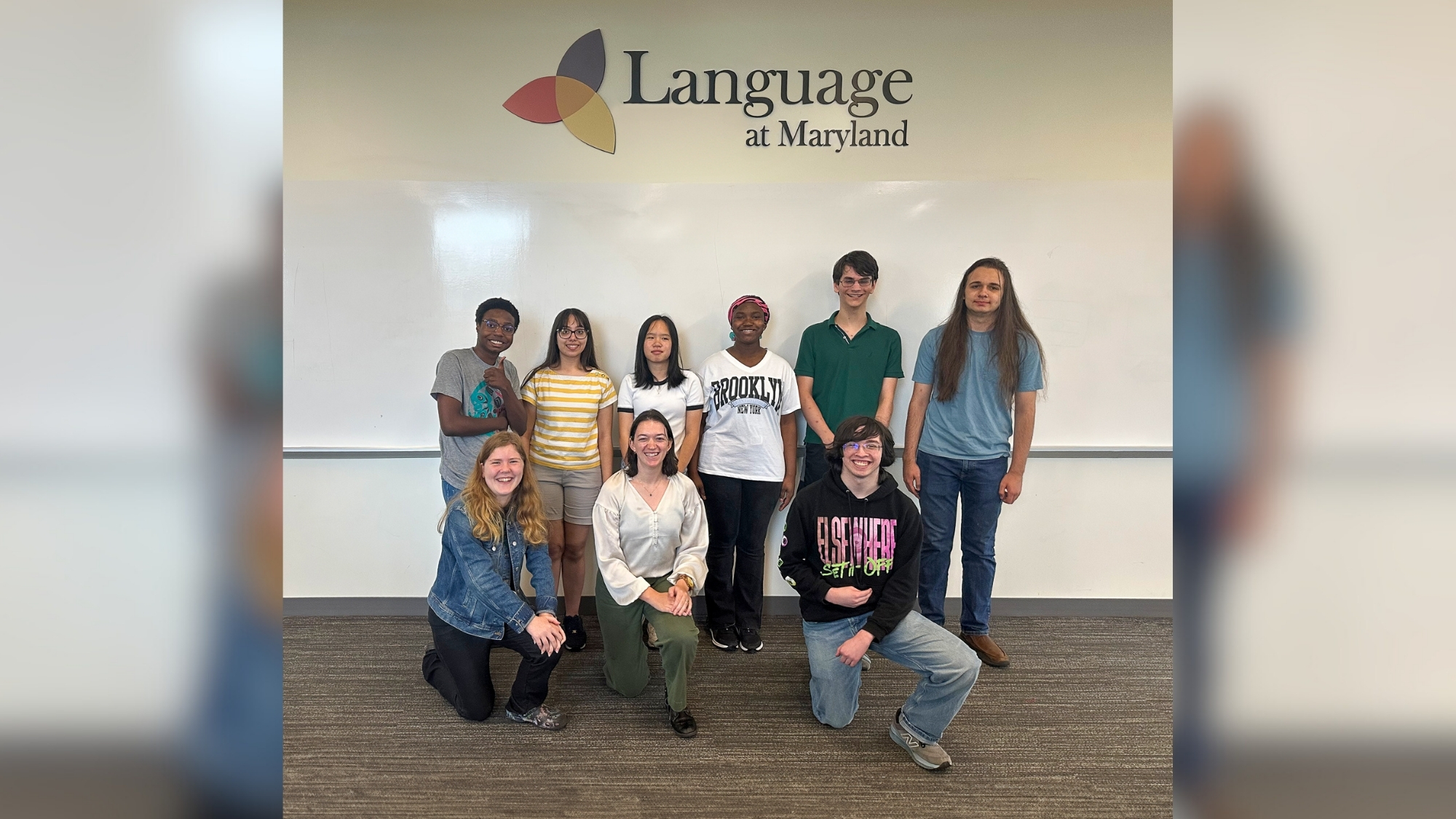From “Nice” to “Slay”: High Schoolers Explore Language Science at UMD
August 29, 2025

Terp Young Scholars dove into the science of slang and discovered how their own words are shaping the future of language.
This summer, the Maryland Language Science Center offered an accelerated three-week linguistics course for high school students in the Terp Young Scholars program, led by instructor Emily Lord.
Titled “Lol that's Not Funny: Language Change and Linguistic Creativity in Online Communication,” the course was designed to give students a head start on college credit while providing a fun introduction to language science. It blended basic linguistics, sociolinguistics, and an introduction to computational language science, all exploring how language is evolving in the digital age.
Students from diverse backgrounds, whether already interested in language or simply curious, participated in interactive classes that combined lectures, hands-on activities, and engaging discussions. An example students learned about is semantic shift, when words change their meanings over time. This typically falls into five categories: broadening (becoming less specific), narrowing (more specific), amelioration (more positive), pejoration (more negative), or weakening (less intense). Students evaluated semantic shifts of modern slang like "slay" or "sick" alongside much older words like "nice." These words have all undergone amelioration. (“Nice” used to mean foolish or ignorant!) Examples like these show students that language change follows recognizable patterns that linguists can study and analyze.
Lord kept the course exciting with guest speakers, including data scientists, who highlighted real-world applications of language science and coding. Students saw how their learning connects to practical careers while also experiencing college-level learning and expectations.
Lord’s teaching approach created an inclusive environment where students felt empowered to ask questions, share perspectives, and explore language. Lord described the Terp Young Scholars as “some of my most engaged students I’ve ever had” and notes that “I would have to cut discussion off” to stay on schedule.
The course encouraged respect for linguistic diversity, built confidence and critical thinking skills, and inspired students to see themselves as active participants shaping the future of language. When reflecting on takeaways from the course, Lord had this to say to the Terp Young Scholars: “you guys are language innovators… The ways that you are evolving language and innovating with language will have an effect on the future.”


